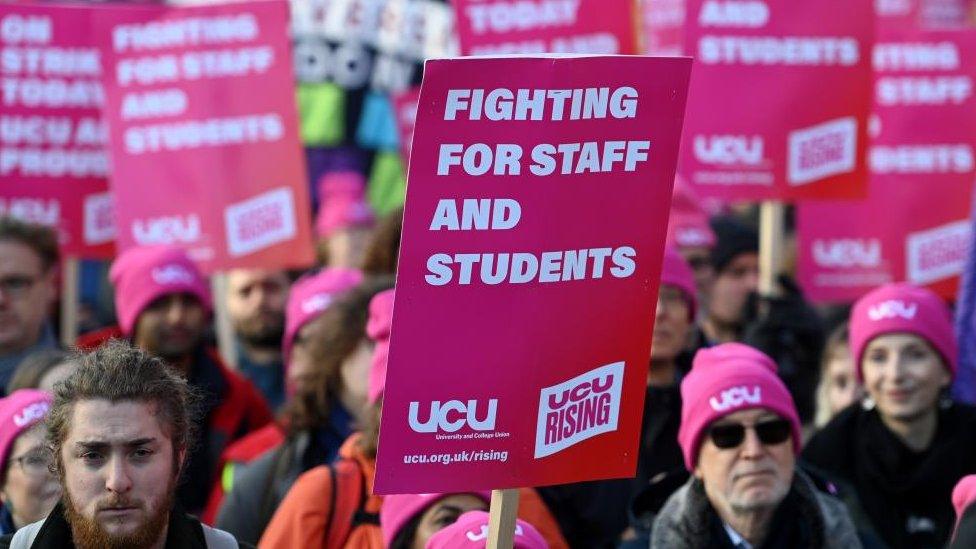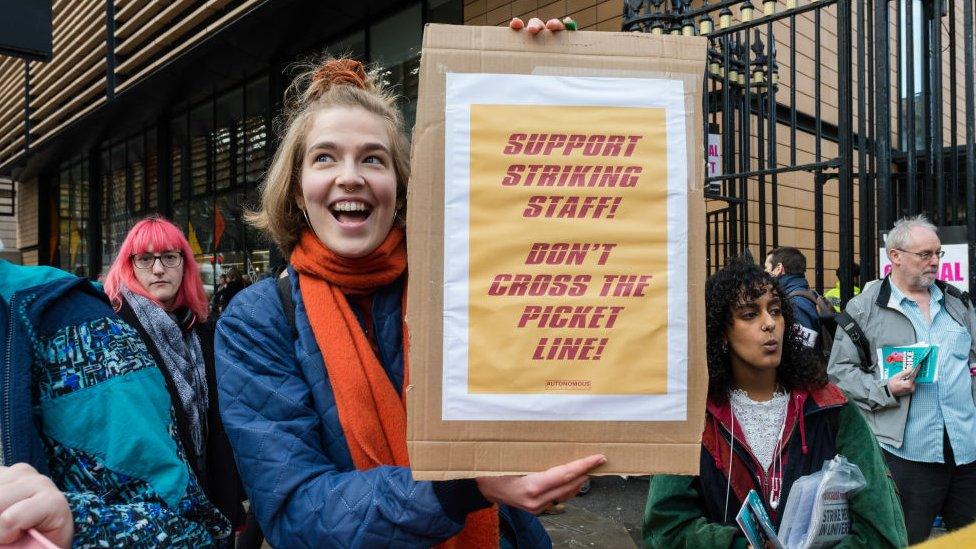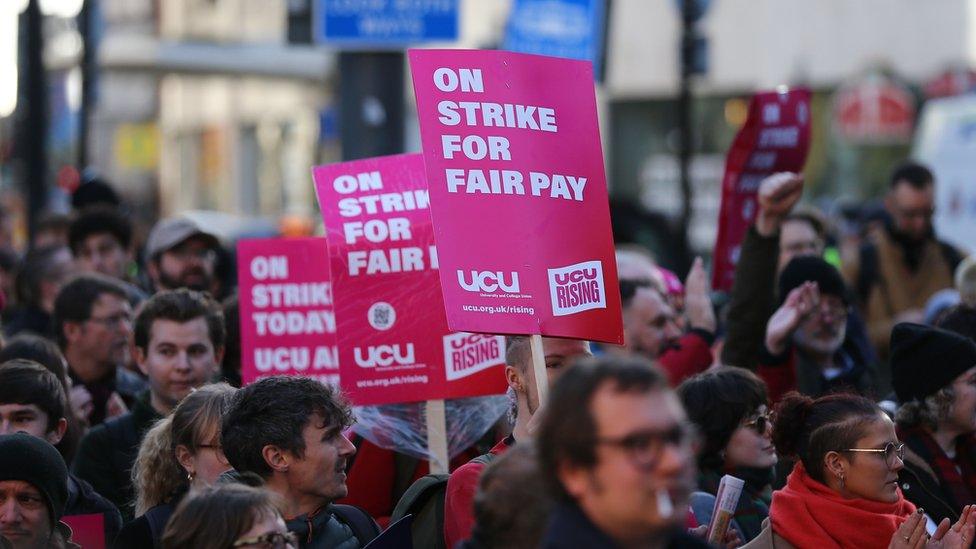University marking boycott: Robert Halfon calls for talks to end dispute
- Published

The government has urged university bosses and a lecturers' union to restart talks and prevent disruption continuing into the new academic year.
University and College Union (UCU) members have been boycotting marking papers since April over a pay dispute.
Negotiations with the University and College Employers Association (UCEA) have broken down without an agreement.
Education minister Robert Halfon said the uncertainty faced by students was "unacceptable".
The UCU has vowed to continue the marking boycott, which covers all exams and any assessment that counts towards a student's final grade, until the dispute has been resolved.
The industrial action at 145 higher education institutions across the UK began on 20 April.
The union has a six month mandate from members to continue the action, meaning it will run into the new term - which starts in early September for some universities - without a resolution.
It means some students left university this summer without knowing what grade they have been awarded, or were unable to graduate at all.
UCU members voted to reject a pay offer for 2023-24 worth between 5% and 8%, with the union pushing for a rise of the highest from two options - the RPI measure of inflation plus 2%, or a 12% increase.
Senior union officials are due to hold an emergency meeting on Monday to decide on their next steps.
Mr Halfon wrote to UCU general secretary Dr Jo Grady on Friday ahead of that meeting, saying: "It is unacceptable that students, many of whom have already suffered significant disruption to their studies over recent years, face further disruption and uncertainty".
He continued: "Final year students who have still not yet graduated will be understandably anxious about the status of job offers or progression to further study.
"It would be disappointing if future cohorts suffer similar disruption as a result of a marking and assessment boycott.
"Whatever the rights and wrongs of the current dispute, action that damages students' prospects is the wrong thing to do."
The government does not have a formal role in the negotiations, but the education minister called for news talks to be held as soon as possible.
Dr Grady welcomed the letter, adding "I'm glad to see the government has taken notice of the crisis our members and university students are facing".
She continued: "We've done everything possible to settle this dispute, protect UK degree standards and students' graduations, including calling for the talks to restart in the first place.
"Unfortunately, UCEA, and university bosses, have made it clear they would rather throw students under the bus than settle this dispute."
She said Mr Halfon should urge the UCEA to "use the sector's huge wealth to support staff and allow students to graduate".
In a separate letter to Raj Jethwa, the chief executive of the UCEA, he urged the body to do "everything within your powers to protect the interests of students".
He added: "Wherever possible, I would encourage higher education providers to award degrees when they have enough evidence of a student's prior attainment to do so."
Mr Jethwa said: "Our recent feedback that two thirds of higher education institutions said that all of their students were able to graduate this summer is little comfort to the students who continue to bear the marking and assessment repercussions, nor for the higher education institutions and the staff who have been working tirelessly to try to help these students.
"This form of industrial action, which is particularly damaging to students at this time of year, has been very disappointing."
Related topics
- Published20 October 2023

- Published21 June 2023

- Published3 April 2023
